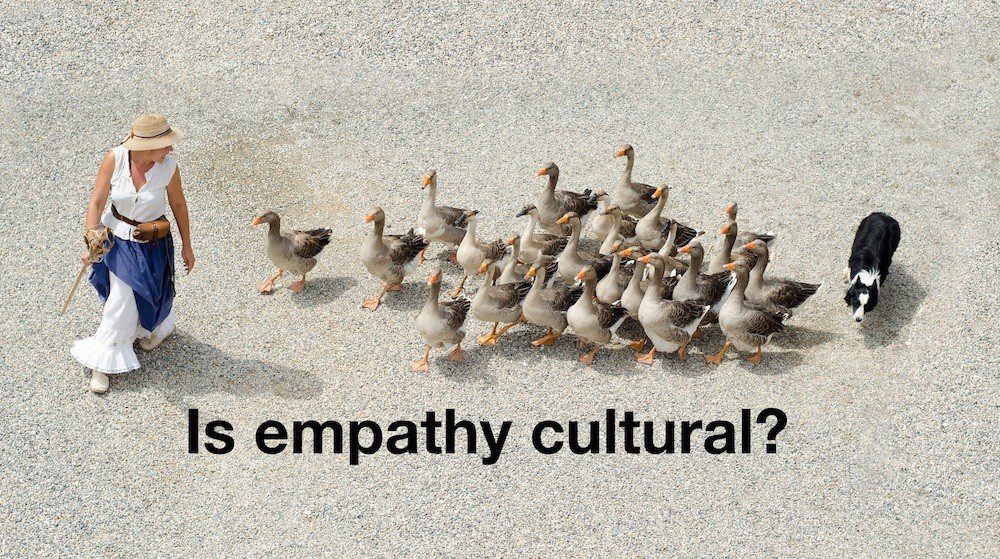When I speak on the subject of empathy,* one question keeps coming up in conferences around the world:
Is empathy different from one country to another?
In that vein, one might also ask a second question: Is empathy cultural?
To the former question, I say definitively no. To the latter, I say maybe.
The main premise about empathy is that it is a skill that becomes a quality when used for the benefit of the recipient, whether or not the empathy is itself perceived by the recipient. To clarify what I mean in terms of defining empathy, there are two types: cognitive and affective empathy. With the former, it’s about taking perspective and understanding the other’s feelings, thoughts and experiences. The latter is the ability to feel the other person’s feelings.
Accordingly, when it comes to cognitive empathy, the underlying skill is the same for everyone around the world: to understand the other. Unlike affective empathy, cognitive empathy is a skill one can learn and hone.

Afterwards, the question becomes what you do with that empathy. You can choose, for example, to do nothing, be warm, provide solutions or exhibit compassion. In other words, the act of being empathic does not necessarily require being felt by the recipient. Yet, “empty empathy”, or being empathic without doing anything that benefits the recipient, can lend itself to malevolent ends. Some people believe that empathy without action is meaningless. I disagree. The very act of listening is an action. And if the recipient only wants to be understood, sometimes, no follow-up course of action is needed.
The cultural variations of communication
Coming back to the original question posed, is empathy different according to the country? The answer is that the underlying skill of empathy is exactly the same no matter the country. In other words, at its base, with cognitive empathy, you are seeking to understand the other person. What does differ culturally are the language, signals, codes and behaviours one needs to interpret. As has been documented by other scientists and psychologists, basic emotions are the same around the world. Mannerisms may change and, certainly, what may anger, excite or make us laugh differs.
Moving beyond your frontier
The real gambit — and inherent challenge for those of us who are empathically challenged — of flexing our empathic muscle is to do so with people beyond our frontiers or outside our comfort zone, and to provide a positive response to the thus-understood other person. It is in this manner that — according to the recipient and scope of the empathy — the parameters will be set to judge the positive quality of the empathy.
Can empathy be a sign of weakness?
Insofar as my definition of empathy doesn’t correlate with being nice, empathy is not a sign of weakness. In some cases, though, empathy can lead to complications. For example, an overly empathic doctor or nurse can become over-invested in a patient. If empathy overpowers you such that you forget yourself and your objectives, someone else could potentially take advantage of your empathic senses. But, if you can deploy empathy and, moreover, understand the deviousness of the other (if such is the case), you can use empathy to better effect for yourself. In this way, empathy transcends cultural differences. It’s how you use it that makes the difference.
The real issue is contextual
As it is, the skill of empathy is challenging even within one same culture. In fact, sometimes, it’s hardest to be empathic with those with whom you are closest. According to the context and relationship (and/or a lack of data), one can easily find being effectively empathic difficult. The further you are from your normalised situation or culture, the harder it is to flex your empathic muscle. Being aware of the difference is a start. A major challenge is having the right learning data set (even for the analogue human being). Learning from experience, straining to listen actively and adopting humility (that you may be wrong) are the key levers for being truly empathic, wherever you are.
*In case you’d like to read more on the topic of empathy and how to develop it in your business, please check out my book, Heartificial Empathy!












Trackbacks/Pingbacks